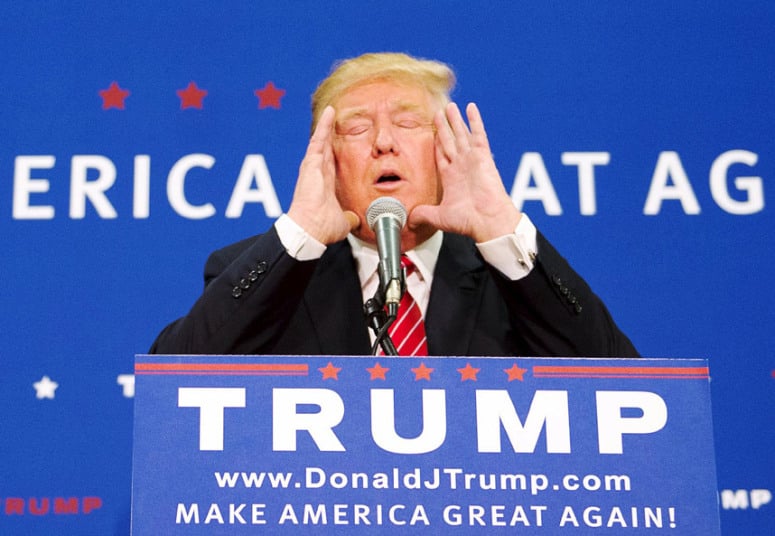
(REUTERS/Gretchen Ertl)
Could President Trump’s inaugural speech have a passage on foreign policy that runs something like the following?
“… U.S. foreign policy is action taken in the name of the American people as a whole. That’s why we all want so badly for it to show America as we see it.
I’ve said my Presidency is about taking back our country, about putting it first and making it great again. Overall, the way to do that is to focus again on our amazing Declaration of Independence.
We are caught up in our arguments, but we all agree that this nation was founded on rights, and on government dedicated to serve those rights. Those principles define the nation; we take our country back when we put them back above the arguments. When we observe them, when we do what we must to defend our freedom, when we make every effort to show our deepest nature, then we are as great as America is meant to be.
So every foreign policy action must trace back to how it fits our founding principles. I will judge our foreign policy options on that basis, and I will decide, and explain our actions, in those terms.
We will not all agree on every measure: we might hate each others’ interpretation of the Declaration. But we can remind ourselves that we agree on the principles; our differences are about interpretations and means, not ends.”
Anyone might be tempted to imagine more, but if only this much is expressed, it would be a first step in building common ground. Setting the Declaration as policy criterion would also promote coherence in foreign policy, across issues and over time. Even as our doctrines and world conditions evolve, and as our politics ebb and flow, the undercurrent of America’s nature will be clear.
This language would set the terms in which we address the world in a way that keeps the basic commitment of America’s founding in view. Its implied images, whether of deep friendship, of acceptable conduct toward us, or of hostility to be resisted, fit the broad patterns of our values throughout history.
Moreover, President Trump could say these words without compromising candidate Trump’s themes. Some specific ideas may become indicators of priority rather than concrete proposals. But the greatest force of his mandate comes from a general sentiment, for old-fashioned ideas of right and good to take priority. This language, in reminding everyone of America’s underlying consensus, carries that sentiment.
President-elect Trump could also use this criterion to manage the tangled masses of expertise that will be thrown at him. He need not be expert in the field; he could take the role of questioner in chief, requiring every proposal to include an accounting of how it fulfills or supports America’s founding tenets. He wouldn’t need to ingest the nuances of our deceptively simple creed: competing proposals will have to present their interpretations, and those nuances, to him.
Language like this would tender the prospect of real public discourse. Re-voicing the basis of our founding will also remind everyone of the deep appeal of America’s nature. It’s worth hoping for.